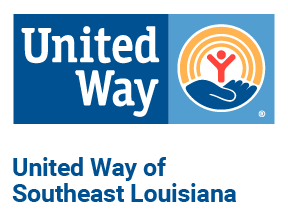10/10/22
Content warning: This blog discusses suicide.
“What mental health needs is more sunlight, more candor, and more unashamed conversation.” – Glenn Close
Pop quiz: Which is more important to your overall health – mental health or physical health?
According to the Centers for Disease Control and Prevention, both are equally important. Yet, stigma persists around mental illness and can drive individuals to avoid or delay treatment (American Psychiatric Association).
United Way of Southeast Louisiana is working to ensure everyone in our community has the support they need to be mentally and physically healthy. We recently joined New Orleans City Councilmember Joe Giarrusso and partners to launch a mental health collaborative that will bring together expert mental health providers and partners to understand, identify, & fill gaps in mental health care in the city through alignment and funding.
It’s one way we’re demonstrating that together, we can do so much more. If your business or organization is interested in joining the collaborative, please email UWSELA’s Melisse Meza at MelisseM@UnitedWaySELA.org.
Suicide Prevention Resources You Need to Know
Education and awareness are important components to ending the stigma around mental health challenges. We sat down with Sherrard Crespo, VIA LINK’s Director of Outreach and Prevent Child Abuse Louisiana, last month to talk about local resources available for anyone experiencing mental stress and how to approach hard conversations around suicide.
VIA LINK is a United Way Community Partner that offers many mental health resources including a teen crisis text line, support groups for survivors of suicide loss, and more. View all of their services at VIALINK.org.
Listen to Sherrard’s full interview here. Excerpts below have been shortened and edited for clarity.
A new three-digit dialing code, 988, recently launched for the National Suicide Prevention Lifeline. What should everyone know about 988?
“988 is the new three-digit dialing code for the National Suicide Prevention Lifeline. You can dial those three digits from your phone and get connected to a local lifeline suicide prevention center. I think sometimes the confusion around 988…is that this is a national number, but what’s important to know is that it’s actually a local service. You will get routed to your state’s local lifeline center based on the phone number you’re dialing from.
…And it doesn’t have to be a suicide crisis. Anytime you need to talk, get something off your chest, maybe you’re not prepared to talk about what you’re going through with someone you know yet...Give us a call, we’re there for anything and everything. Nothing is too big or too small.”
The benefit of connecting with local specialists is that they have local resources and referrals at their fingertips?
“Yes, absolutely. At VIA LINK, we have a very extensive resource database that is extended statewide for behavioral health resources. So should you call us, we talk, and then you realize, ‘I’d like to see a therapist,’ or, ‘I’d like to look at some sort of treatment options,’ – we can get you connected to those local resources for behavioral health.”
What would you say is the overall wellbeing of our community, based on the number of calls you get, the number of people seeking crisis intervention, etc.?
“We’ve certainly seen an increase in call volume since the pandemic started and then even moreso after the 988 number was launched…There’s a lot more intensity to the calls lately. I think with everything that is going on in the community and socially since the pandemic, and then we’ve had hurricanes and then financial stress. It’s just a lot lately, and people just need that outlet to vent and to talk…”
What recommendations do you have for someone who is concerned a loved one may be considering suicide and wants to talk to them?
“Before you enter into a conversation like that, check yourself and make sure that you’re ready. If you are not in that mentally to be able have that conversation, that is ok. You just have to find somebody who can.
Then having the courage to say directly, ‘Hey, I’ve been a little concerned about you, I love you, and I’ve noticed this and this…’ Tell them what you’ve seen so it doesn’t seem as judgmental, and then ask them if they’ve had thoughts of suicide.
Using that word suicide is so important, and it cannot cause any harm. In fact, not asking directly about suicide is what can increase risk. Because when we use the word suicide, we’re taking a lot of that stigma away from it…
The most difficult part of that conversation – and what can be so underestimated - is that you’ve got to be prepared to listen...You need to be able to listen and not negate their feelings…To really first to say, ‘I’m so glad you’re telling me this, I can hear the pain that you’re in and I’m so glad you’re opening up to me.’ Because that person’s feelings and thoughts are very real to them, even if it doesn’t make sense from the outside…”
Are there any special mental health resources available for young people?
“Any age can call 988…Also for younger people we have a statewide teen crisis text line where you can text 833-TXT-TEEN (833-898-8336). You’ll get connected to a live person, never a bot, who’s there to talk to you about anything and everything you’re going through.
…Those suicide rates are rising dramatically in younger people, and especially in Louisiana. So it’s very important for families, for parents, for caregivers, and for schools to be giving these resources out to students so they know there is always someone there available to talk to them.”
